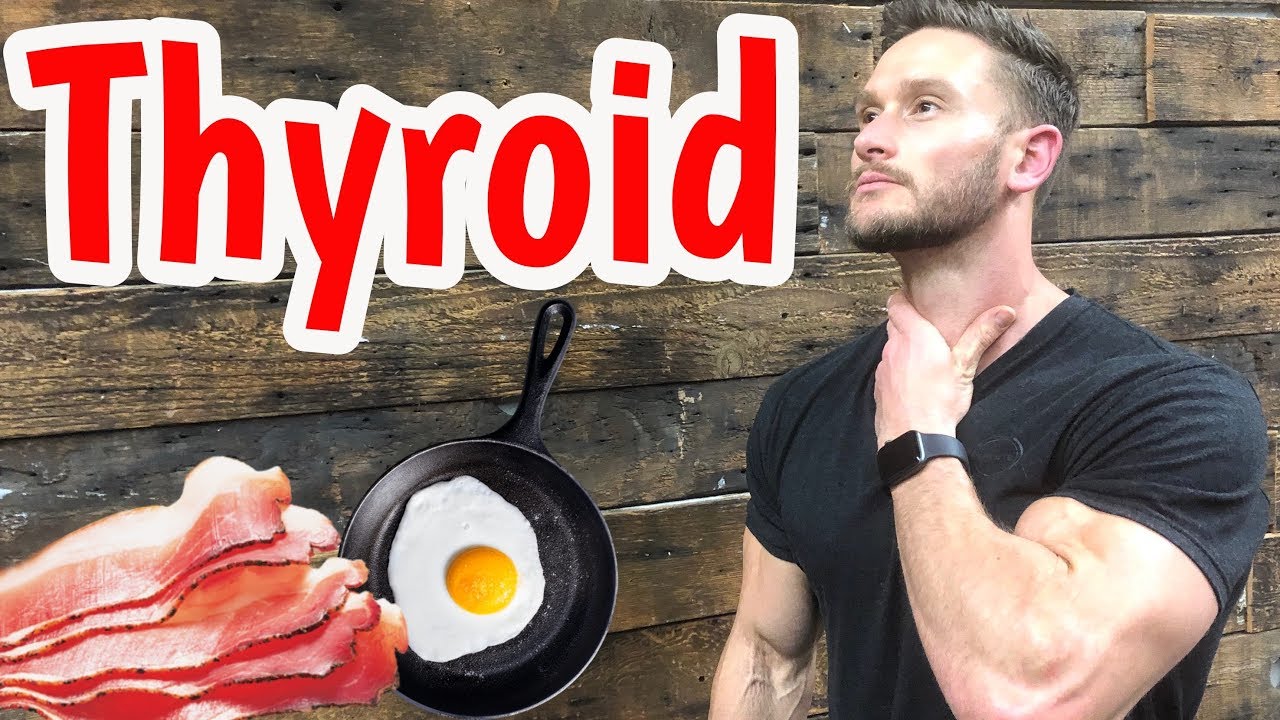Low Carb Diets vs. Thyroid | Keto & Intermittent Fasting Effects (Thyroid Myths)
Video
Description
Click Here to Subscribe:
Get MY groceries at MY price with Thrive Market:
My Website:
Low Carb Diets vs. Thyroid | Keto & Intermittent Fasting Effects (Thyroid Myths) – Thomas DeLauer
A study published in the journal Diabetes & Metabolism looked at the effects of a keto diet on thyroid function is 6 healthy subjects. During the keto diet, concentrations of fat derived substrates (free fatty acids, glycerol and 3-hydroxybutyrate) rose significantly and glucose levels decreased, and there was a fall in insulin levels and a rise in glucagon concentration. A significant fall in triiodothyronine (T3) and rise in reverse triiodothyronine were observed, while thyroxine (T4) levels remained unchanged
Why this isn’t a Cause for Concern:
There is evidence that following a ketogenic diet may lower T3 levels, but this does not necessarily qualify as causing hypothyroidism and may actually be beneficial.
Study – Metabolism: Clinical and Experimental (Volek)
Looked at the effects of a 6-week keto diet on total and regional body composition and the relationships with fasting hormone concentrations. 12 healthy normal-weight men switched from their habitual diet (48% carbs) to a carbohydrate-restricted diet (8% carbs, 61% fat, 30% protein, with 25% calories coming from SFA, 25% from MUFA, and 11% from PUFA.) 8 men served as controls, consuming their normal diet. Fat mass was significantly decreased (-3.4 kg) and lean body mass significantly increased (+1.1 kg) at week 6. There was a significant decrease in serum insulin (-34%), and an increase in total thyroxine (T(4)) (+11%) and the free T(4) index (+13%) – T3 was not directly measured, but there was no significant change. The high-fat group had normal T4 and lost significant body fat, which is very hard to do if you’re hypothyroid.
Study – Thyroid:
47 subjects underwent a 12-month individualized dietary intervention aimed at achieving a 5-10% weight loss – they lost an average of 6.5%. After weight loss, T3 decreased significantly in the absence of significant changes in TSH or free T4 (fT4). The decrease in serum T3 correlated with the decrease in weight.
Longevity:
A study published in JAMA looked at the association of thyroid function and life expectancy – the mean age of the 7785 participants was 64.7 (9.8) years. They found that in the at the age of 50 years, participants with low-normal thyroid function live up to 3.5 years longer overall and up to 3.1 years longer without cardiovascular disease (CVD) than participants with high-normal thyroid function.
Nutrients:
Many people who convert to a ketogenic diet have drastically changed the types of foods they eat in a short amount of time. Important to ensure you are still receiving all necessary conversion factors in your diet for healthy thyroid hormone levels:
Iodine, tyrosine, Vitamin A, Selenium, Zinc, B Vitamins, Vitamin C, and Vitamin E are all important for the production of thyroid hormones.
Thrive Products:
Seaweed – Iodine-
Your thyroid, which has tiny cells that capture the circulating iodine, takes in and oxidizes it so it can begin to be used to create triiodothyronine (T3) and thyroxine (T4)
Brazil Nuts – Selenium-
Iodine – the building block and key ingredient of thyroid hormone – actually requires selenium in order to be synthesized properly into thyroid hormone.
Greek Yogurt – Gut Thyroid Link-
20% of thyroid function depends on a sufficient supply of healthy gut bacteria to convert T4 to T3.
References:
1) Fery F , et al. (n.d.). Hormonal and metabolic changes induced by an isocaloric isoproteinic ketogenic diet in healthy subjects. – PubMed – NCBI. Retrieved from
2) Human longevity is characterised by high thyroid stimulating hormone secretion without altered energy metabolism. (n.d.). Retrieved from
3) Life Expectancy Within the Reference Range of Thyroid Function. (2017, November 1). Retrieved from
4) Volek JS , et al. (n.d.). Body composition and hormonal responses to a carbohydrate-restricted diet. – PubMed – NCBI. Retrieved from
5) Agnihothri RV , et al. (n.d.). Moderate weight loss is sufficient to affect thyroid hormone homeostasis and inhibit its peripheral conversion. – PubMed – NCBI. Retrieved from













